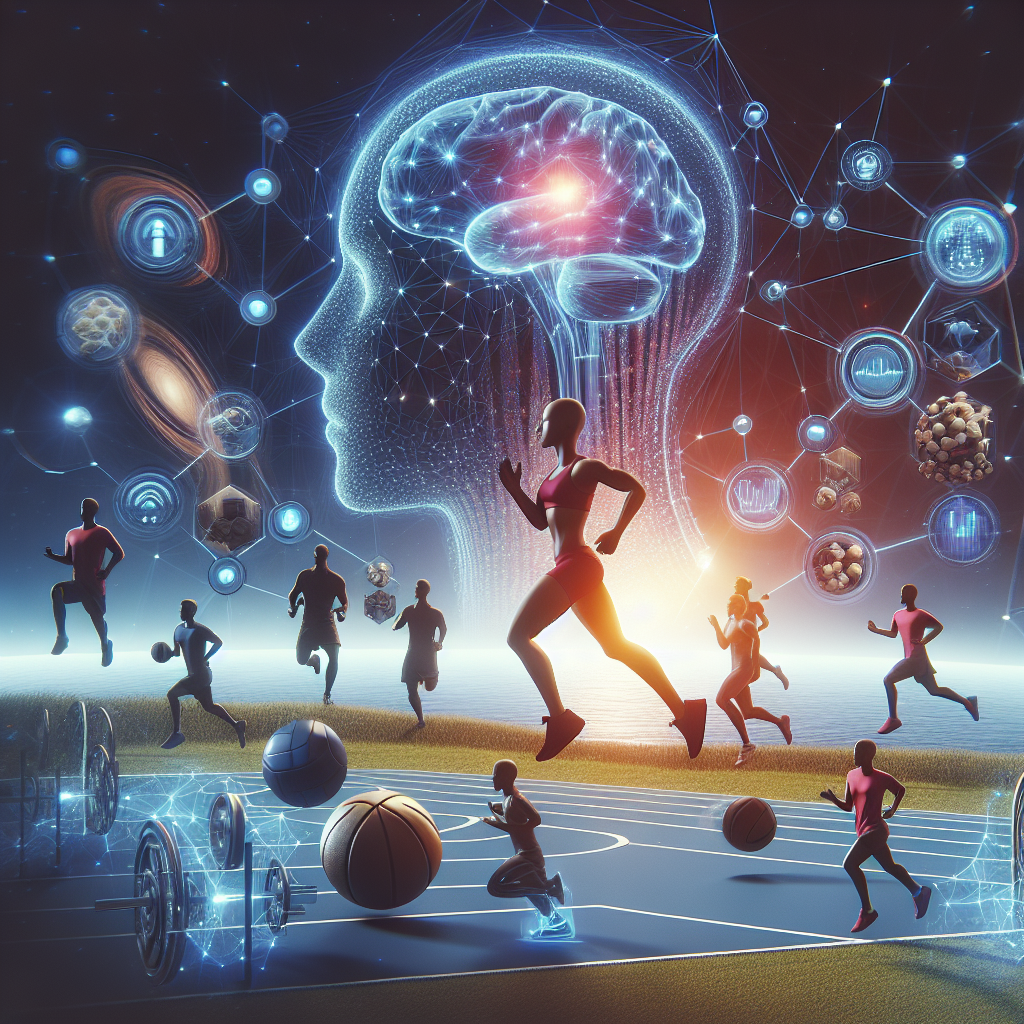Artificial intelligence (AI) has been revolutionizing various industries, and sports performance enhancement is no exception. With the advancement of technology, athletes and coaches are now able to utilize AI to optimize their training techniques and achieve peak performance. From personalized training programs to injury prevention, AI has the potential to take sports performance to a whole new level.
One of the key areas where AI is making a significant impact in sports performance enhancement is in the development of personalized training programs. By analyzing data from wearable devices, such as heart rate monitors, GPS trackers, and accelerometers, AI algorithms can provide athletes with real-time feedback on their performance and suggest personalized training plans. These plans take into account various factors such as an athlete’s fitness level, recovery time, and performance goals, resulting in more efficient and effective training programs.
Furthermore, AI can also help athletes and coaches identify weaknesses and areas for improvement. By analyzing data from training sessions and competitions, AI algorithms can pinpoint patterns and trends in performance, enabling athletes to focus on specific areas that need attention. This targeted approach can lead to faster progress and better results, ultimately enhancing overall performance.
In addition to personalized training programs, AI can also play a crucial role in injury prevention. By analyzing biomechanical data and movement patterns, AI algorithms can detect potential injury risks and provide recommendations for corrective exercises or adjustments to training techniques. This proactive approach can help athletes avoid injuries and stay healthy, enabling them to perform at their best for longer periods of time.
Another way in which AI is optimizing sports performance enhancement techniques is through the use of virtual reality (VR) and augmented reality (AR) technology. By immersing athletes in simulated training environments, AI-powered VR and AR systems can provide realistic scenarios for practice and skill development. This can help athletes improve their decision-making skills, reaction time, and situational awareness, ultimately enhancing their performance on the field or court.
Furthermore, AI can also assist coaches in analyzing game strategies and tactics. By processing vast amounts of data from previous games and competitions, AI algorithms can identify patterns and trends in opponents’ behavior, as well as strengths and weaknesses in their own team’s performance. This information can help coaches develop more effective game plans and strategies, giving their team a competitive edge.
Overall, AI is revolutionizing sports performance enhancement techniques by providing athletes and coaches with personalized training programs, injury prevention strategies, and advanced analysis tools. By harnessing the power of AI, athletes can optimize their performance and achieve their full potential in their respective sports.
FAQs:
Q: How does AI analyze data from wearable devices to provide personalized training programs?
A: AI algorithms process data from wearable devices such as heart rate monitors, GPS trackers, and accelerometers to analyze an athlete’s performance in real-time. By taking into account factors such as fitness level, recovery time, and performance goals, AI can suggest personalized training programs tailored to the individual athlete.
Q: How does AI help in injury prevention?
A: AI can analyze biomechanical data and movement patterns to detect potential injury risks and provide recommendations for corrective exercises or adjustments to training techniques. This proactive approach can help athletes avoid injuries and stay healthy, ultimately enhancing their performance.
Q: How does AI-powered VR and AR technology enhance sports performance?
A: AI-powered VR and AR systems provide athletes with simulated training environments for practice and skill development. By immersing athletes in realistic scenarios, these technologies can improve decision-making skills, reaction time, and situational awareness, ultimately enhancing performance on the field or court.
Q: How does AI assist coaches in analyzing game strategies and tactics?
A: AI algorithms process data from previous games and competitions to identify patterns and trends in opponents’ behavior, as well as strengths and weaknesses in their own team’s performance. This information helps coaches develop more effective game plans and strategies, giving their team a competitive edge.

